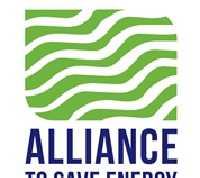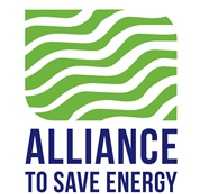ULI to Advise Miami-Dade County on Strategies to Improve the Resilience of the Arch Creek Basin Area
Renowned Panel of Land Use and Urban Planning Experts to Visit Area May 22-27
WASHINGTON – May 20, 2016 – (RealEstateRama) — A group of renowned land use and urban planning experts has been convened by the Urban Land Institute (ULI) to make recommendations to Miami-Dade County on improving the resilience of the Arch Creek Basin area to the impacts of climate change.
The panelists, convened through ULI’s advisory services program, will be visiting Miami May 22-27, 2016 to evaluate the most effective strategies for developing and redeveloping properties in the area to ensure that they can withstand increased inland flooding, rising seas, and other climate change-related events. The panel’s recommendations for improved resilience will reflect a holistic approach to adaptation strategies, emphasizing building healthy places and creating economic prosperity in addition to improving environmental sustainability. The panel’s recommendations will also consider the site in the context of its selection as the county’s first Adaptation Action Area pilot project.
The panel’s work will reflect the climate change adaptation planning work already undertaken in the Southeast Florida region by Miami-Dade County and the Southeast Florida Regional Climate Change Compact. Among the factors being considered by the panel are: land uses that best accommodate future needs given economic, environmental and demographic changes; the impact of flooding and storm surges on site marketability; land use techniques to improve resilience and incentives to encourage use of the techniques; and using resilient development strategies in a manner that promotes social equity.
The assignment for Arch Creek Basin is part of a series of advisory panels being supported by a generous grant from The Kresge Foundation to advance the institute’s pursuit of urban design and development practices that are more resilient and adaptable to the impacts of climate change. With Kresge’s support, ULI is leveraging the substantial expertise of its members to provide guidance on community building in a way that responds to inevitable climate change while helping to preserve the environment, boost economic prosperity, and foster a high quality of life. (The Kresge Foundation is also supporting efforts underway by the Southeast Florida Regional Climate Change Compact.)
The communities chosen for advisory panel assistance through ULI’s community resilience work are being selected on the basis of 1) the community’s long-range resilience challenges and vulnerabilities to severe weather-related events, and 2) the opportunity for the results to be applied to other communities with similar vulnerabilities. The assistance is part of Institute’s overall efforts to help communities prepare for increased climate risk in ways that foster a quicker, safer return to normalcy after an event and an ability to thrive going forward. ULI has advised several communities across the United States on resilience strategies, including Norfolk, Virginia; Portland Maine, Duluth, Minnesota; and Seattle.
The panel, which includes experts representing all aspects of urban design and urban development, is being sponsored by Miami-Dade County. During the visit, panelists will tour the Arch Creek Basin area and meet with public officials representing all municipalities within the study area, as well as other stakeholders. After carefully analyzing the area and completing the interviews, the panel will then spend two days framing their recommendations and drafting a presentation that will be made to the public at the conclusion of the visit.
The panel is being chaired by ULI leader David A. Stebbins, executive vice president of the Buffalo Urban Development Corporation in Buffalo, New York. Stebbins also participated in a ULI urban resilience panel in Norfolk. “ULI looks forward to bringing the expertise of its members to Miami,” Stebbins said. “The panel’s experience in the Arch Creek Basin area, as well as those of panels around the country, can help provide critical guidance on how communities can be built to be more resilient, and improve their economic, environmental and social well-being in the process.”
In addition to Stebbins, the other panelists are: James Lima, president, James Lima Planning + Development, New York City, who is serving as panel vice chairman; Wendi Goldsmith, chief executive officer, Sustainability Visions, LLC, and director, Center for Urban Watershed Renewal, Manchester-by-the-Sea, Massachusetts; Walter Meyer, principal, Local Office Landscape Architecture, Brooklyn, New York; Manuel Ochoa, senior analyst and program director, Enterprise Community Partners, Washington, D.C.; Judi Schweitzer, founder, president, and chief sustainability advisor, Schweitzer Associates, Lake Forest, California; Julie Ulrich, director of urban conservation, The Nature Conservancy, Philadelphia, Pennsylvania; Bob van der Zande, director, residential markets, Development Corporation, City of Amsterdam, The Netherlands; and Ron Williams, deputy city manager, Norfolk, Virginia.
The project staff is being led by Sarene Marshall, executive director of ULI’s Center for Sustainability. “ULI has a long history of advising communities on development strategies that are environmentally conscious, economically sound, and which provide community-wide benefits,” she said. “Sustainability, livability, health and prosperity are all necessary components of resilience, and land use patterns link these together. We are seeking to help communities think beyond catastrophes and evolve into thriving places with more potential and promise than ever before.”
NOTE TO REPORTERS AND EDITORS: The ULI panel’s recommendations will be presented at 9 a.m. on Friday, May 27, at the Gwen Margolis Community Center, 1590 NE 123 Street in North Miami. The event is open to the public.
About the Urban Land Institute
The Urban Land Institute is a nonprofit education and research institute supported by its members. Its mission is to provide leadership in the responsible use of land and in creating and sustaining thriving communities worldwide. Established in 1936, the institute has more than 38,000 members worldwide representing all aspects of land use and development disciplines. For more information, please visit uli.org or follow us on Twitter, Facebook, LinkedIn, and Instagram.
About the ULI’s Center for Sustainability
The ULI Center for Sustainability is dedicated to creating healthy, resilient, and high-performance communities around the world. Through the work of ULI’s Urban Resilience program and the Greenprint Center for Building Performance, the Center advances knowledge and catalyzes adoption of transformative market practices and policies that lead to improved energy performance and portfolio resilience while reducing risks due to a changing climate.
contact: Trisha Riggs at 202-624-7086















